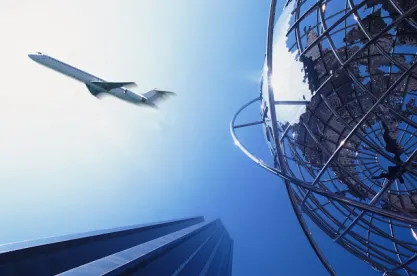The Court of Appeal has ruled in Virgin Atlantic Airways v Jet Airlines (India) & Zodiac Seats UK and others [2013] EWCA Civ 1713 that the English Courts have no general power to assess the validity of a patent granted by the European Patent Office (EPO).
BACKGROUND
This is the latest patent judgment relating to Virgin Atlantic Airways’ three airline seat patents (EP (UK) 2 272 711 (711 patent), EP (UK) 2 289 734 (734 patent) and EP (UK) 1 495 908 (908 patent)) and their alleged infringement by Zodiac Seats UK, a seat manufacturer, and several airlines (the defendants).
A number of issues were considered in this appeal. In respect of the 734 patent, the Court of Appeal was asked to consider if the of the 908 patent, the Court of Appeal was asked to consider if the first instance judge had erred in deciding it was not infringed and whether or not the judge should have declared the 908 patent “a nullity” since the UK designation only came about as the result of an administrative error at the EPO.
The EPO previously considered arguments based on the procedural errors in respect of the UK designation and rejected them, as did the English High Court when this line of argument was raised as a defence to infringement. In this regard, the defendants relied on arguments based on Article 6 of the European Convention of Human Rights (ECHR)—the right to a fair trial—before the Court of Appeal.
DECISION
The Court of Appeal upheld the reasoning of the High Court on the questions of validity and non-infringement. More interestingly, it held that the English courts have no general power to assess the validity of patents granted by the EPO, except as specified in the European Patent Convention 2000, as such a power would undercut the European patent system. The fact that the Patents Act 1977 confirms that UK designations of European patents shall have the same effect under English law as national patents was determined to be insufficient to create the requisite jurisdictional link to engage the ECHR.
Even if the Court of Appeal was mistaken in its assessment, and the English courts do have the power to assess the validity of patents granted by the EPO, Article 6 of the ECHR does not create additional rights to those granted under national law. The Court of Appeal pointed out that Sections 72 and 74 of the Patents Act 1977 are the only grounds available to challenge the grant of a patent under national law and that they were not applicable here. The defendants consequently did not have the right to challenge the 908 patent. As a result, this question had been dealt with in accordance with Article 6 of the ECHR at first instance.
COMMENT
This is a welcome decision for holders of European patents, preserving certainty in the patent system. Once the EPO has granted a patent, there appears to be no basis to challenge its validity, on grounds of procedural errors in prosecution, via the English courts.
This is not, however, the case for national patents granted by the UK Intellectual Property Office, as the judicial review process can be used to contest a decision of grant.




 />i
/>i

